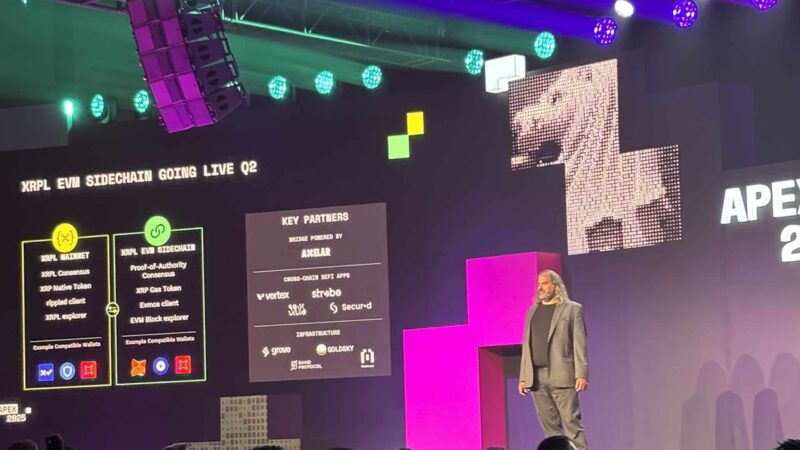Ripple Enhances Ripple Custody with Real-Asset Tokenization
Ripple has improved its Ripple Custody solution by introducing real-asset tokenization through the XRP Ledger, allowing banks and fintech firms to securely issue and transfer tokenized assets.
The user interface has been optimized for a more intuitive experience, with pre-configured operational settings and enhanced security standards thanks to advanced compliance tools and a partnership with Elliptic.
By consolidating its offerings under a single brand, Ripple aims to meet the growing demand for secure and compliant digital asset custody solutions, positioning itself as a key player in a rapidly expanding market.
Ripple, the blockchain payments specialist, is strengthening its offerings for financial institutions with major enhancements to its Ripple Custody solution.
Designed to support banks and fintechs in managing digital assets, this update introduces cutting-edge features, including real-world asset tokenization (RWA).
In a rapidly expanding sector where secure management of digital assets is becoming crucial, Ripple is positioning itself to provide a reliable and adaptable infrastructure to meet the specific needs of global institutions. These new features aim to address the growing demand for compliant and secure custody solutions in the digital asset economy.
Real-Asset Tokenization and New Features
One of the key announcements in this update is the introduction of real-asset tokenization via the XRP Ledger (XRPL). This functionality allows Ripple clients, whether banks or fintechs, to securely issue and transfer tokenized physical or financial assets directly from the Ripple platform. Additionally, users can access the XRPL’s native decentralized exchange, offering low-cost trading options for any tokenized asset.
This service marks a significant step forward for institutions seeking to combine traditional assets with blockchain technology. With the ability to tokenize assets such as real estate, commodities, or other financial instruments, Ripple Custody paves the way for wider adoption of digital assets within the traditional banking ecosystem.
Improved User Interface and Enhanced Security Standards
In addition to tokenization, Ripple has worked to enhance the user experience of its custody solution with a more intuitive interface and pre-configured operational settings, making integration easier for new clients. These improvements are designed to make the management of digital assets smoother and more accessible for banks and fintechs, while meeting the strictest compliance requirements.
Another crucial addition is the integration of advanced compliance tools, including a partnership with Elliptic, a specialist in monitoring crypto transactions to prevent illicit activities. This is complemented by a transaction filtering service and improved options for hardware security modules (HSM), further reinforcing security and asset protection standards for digital assets.
A Growth Strategy for Ripple Custody
The modernization of Ripple Custody is part of a broader strategy to consolidate the company’s custody products under a single brand. By unifying its offerings, Ripple aims to provide critical software infrastructure to its clients for managing, securing, and transferring various types of tokenized financial assets. This consolidation also allows Ripple to better meet the needs of rapidly growing businesses in the crypto and fintech sector, providing them with a scalable and robust solution.
Ripple’s custody technology offers a unique platform for securing and managing digital assets, with security and compliance standards trusted by major global financial institutions. With these new features, Ripple Custody expands its capabilities to better serve the growing businesses in the crypto and fintech sectors.
Aaron Slettehaugh, Vice President of Product at Ripple
An Expanding Market
The digital asset custody sector is experiencing rapid expansion, with financial institutions increasingly seeking reliable solutions for securing the private keys associated with these assets. According to a study by Boston Consulting Group (BCG), assets managed by custody services could reach $16 trillion by 2030. Additionally, it is projected that 10% of global GDP will be tokenized by the same year.
With real-asset tokenization and robust digital asset custody features, Ripple Custody positions itself as a key player for banks and fintech firms seeking to navigate the digital asset era. By offering secure, compliant, and market-adapted solutions, Ripple could redefine how institutions manage and interact with these new asset types.




